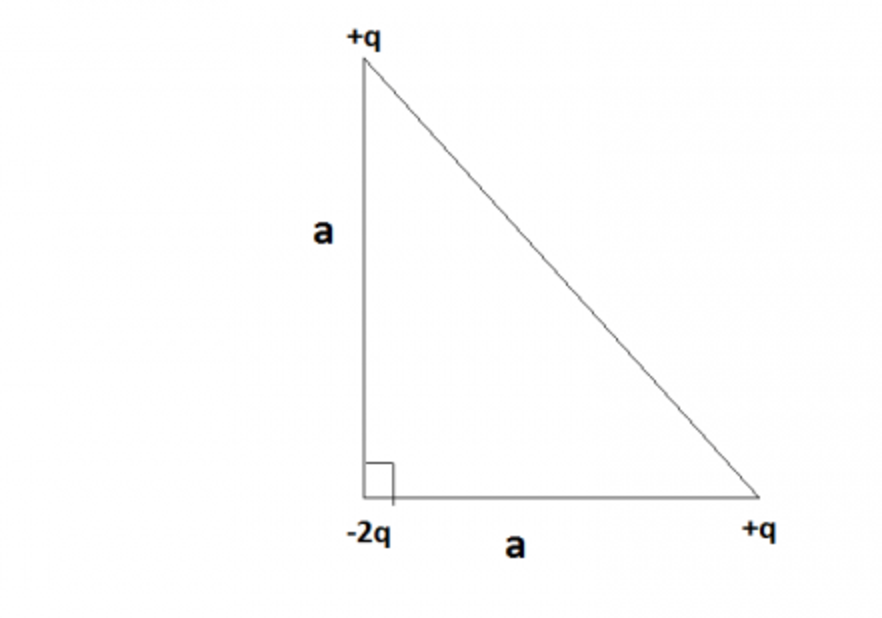Electric Dipole Moment: Difference between revisions
(→Simple) |
(→Simple) |
||
| Line 28: | Line 28: | ||
'''Find the electric dipole moment of this system''' | '''Find the electric dipole moment of this system''' | ||
""Step 1"" | |||
1) Spilt the 2q charge into 2 charges, a positive charge and a negative | |||
2) Notice the geometry of the system, because it has 2 sides of equal length it is a 45-45-90 triangle | |||
===Middling=== | ===Middling=== | ||
Revision as of 12:41, 9 April 2017
Claimed by Summer Mia Bain (Spring 2017)
An electric dipole is created by the combination of two equal and oppositely charged atoms of charge q that are separated by a a distance ""s"". An electric dipole is the simplest piece of neutral matter that can be analyzed in detail. The size of the dipole is measured by its dipole moment "p" which is a product of its charge "q" and distance "s".
The Main Idea
State, in your own words, the main idea for this topic Electric Field of Capacitor
A Mathematical Model
The electric dipole moment is represented by the letter "p". This set is equal to the charge of the atom in an electric dipole multiplied by the distance between the atoms.
[math]\displaystyle{ \boldsymbol{p} = \boldsymbol{s} \times\mathbf{q} }[/math]
A Computational Model
How do we visualize or predict using this topic. Consider embedding some vpython code here Teach hands-on with GlowScript
Examples
Simple
Find the electric dipole moment of this system
""Step 1"" 1) Spilt the 2q charge into 2 charges, a positive charge and a negative 2) Notice the geometry of the system, because it has 2 sides of equal length it is a 45-45-90 triangle
Middling
Difficult
History
Put this idea in historical context. Give the reader the Who, What, When, Where, and Why.
See also
Are there related topics or categories in this wiki resource for the curious reader to explore? How does this topic fit into that context?
Further reading
Books, Articles or other print media on this topic
External links
Internet resources on this topic
References
This section contains the the references you used while writing this page
